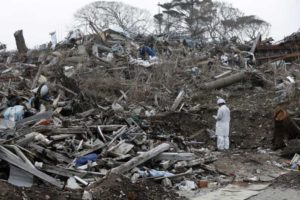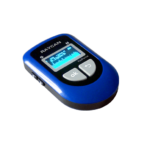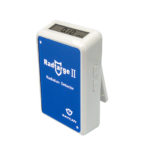
Source: Toru Hanai (Reuters)
It is interesting: without radiation, there would not be life on earth. With too much, like water or salt, the balance of life and death is precariously close.
Four years after Fukushima1 was hit with a huge earthquake and resulting tsunami that caused a nuclear meltdown at the local power plant, the public is still unable to return to normalcy.
Personal radiation detectors like X-Z LAB’s RadPavise | Personal Radiation Detector (PRD) are able to help first responders and safety officers in situations in Japan. Not only are they able to detect the presence of radiation like traditional analog detectors do, but they also act as a survey meter, detecting in proximity x-ray and gamma intensities.
What does this mean?
Several years ago with simple analog detectors like Geiger counters, made from Geiger-Müller tubes (GM), it would be a simple to just detect the presence of high levels of radiation. This is what you see in Hollywood today.
Unfortunately, like NFL injuries, long repeated exposure to low or medium levels of radiation can be detrimental to your health—even leading to premature death.
Simply having a ring or badge change color wasn’t enough, so companies like X-Z LAB developed and manufactured all-digital electronic personal dosimeters, e.g. RadTarge II | Electronic Personal Dosimeter (EPD), to give the global community an option to be aware in real time of radiation exposure levels in the hope of mutual safety and longevity.
Have more questions? Email us at contact@x-zlab.com.
1Fukushima Disaster: Radiation levels posing cancer risks on fourth anniversary of earthquake
By North Asia correspondent Matthew Carney
Updated Tue 10 Mar 2015, 10:54pm
Four years ago today Japan was hit with a magnitude 9.0 earthquake and massive tsunami that caused widespread destruction, leaving almost 22,000 people dead or missing and triggering a crisis at the Fukushima Daiichi nuclear plant.
The triple nuclear meltdown was the world’s worst nuclear disaster since Chernobyl.
About 120,000 people still cannot return their homes because of high radiation levels, but the issue of long-term health implications like cancer are causing the greatest concern and controversy in Japan.
Before the disaster, there was just one to two cases of thyroid cancers in a million Japanese children but now…
